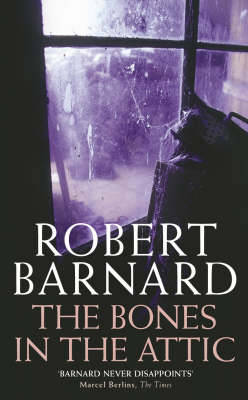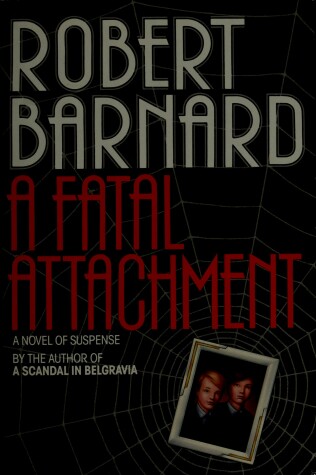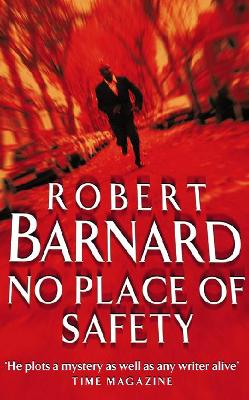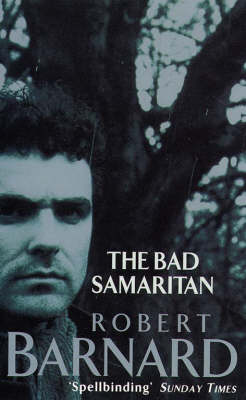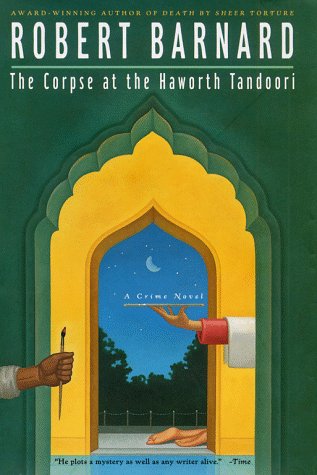Charlie Peace
7 total works
Lydia Perceval was - apparently - a charming and gifted woman. As a successful biographer, she led a privileged and comfortable life in her well-ordered, luxurious country-cottage. She felt terribly sorry for her sister, married to an unemployed drunk, mother of two sons, both of whom had loved their adorable Aunt Lydia much more than their parents. Lydia had a way with young people, particularly boys. She knew how to bring out the best in them. As it happened, her sister's two boys had proved something of a disappointment - Maurice had demeaned himself by going to work in television, and Gavin, the best, had died a hero in the Falklands War. Lydia felt a little lost without some young people to groom into greatness. And then she met the Bellingham boys.
It was like a reply of the past, two bright young boys, one dark, one fair, just waiting for Lydia to take over their lives. But before she could do so, Lydia was strangled.
The motives were subtle, obscure. And there were very few clues. But as Superintendent Mike Oddie started his investigations, he began to suspect that quite a few people hadn't liked the charming Lydia Perceval at all.
'Barnard's three-card trickster's skill for deception is deftly demonstrated' Guardian
'Barnard not only creates an array of sharply etched characters whom he manipulates like a virtuoso puppet-master, he manipulates the reader as well . . . the solution is a classic' Scotsman
'Witty, guileful, and hairy to the end' John Coleman, Sunday Times
A witty and perceptive new novel from Robert Barnard, an acknowledged master of the genre.
When two teenagers go missing from the same school, Detective Constable Charlie Peace is puzzled, because none of their friends seem to know of any connection between them. The mystery soon solves itself: they are not homeless street kids, but they are working at a hostel for them. Charlie knows the life and crimes of such people as these two are trying to help, but he decides that, for the moment, they are safe.
But will Charlie have cause to regret his decision? After all, who is the man running the hostel? What is his past and what is his motivation? And just how nasty is the local opposition to the project likely to become? As the pair continue their good work, the situation at the hostel becomes even more fraught with the appearance of an Asian girl fleeing an arranged marriage. And it isn’t long before a murderous attack seems about to put an end to the whole project.
Rosemary Sheffield has a sort of "reverse epiphany" one day while walking in the park: she no longer believes in God. This sudden loss of faith is at first entirely liberating, but the situation gradually becomes more complicated. Rosemary is, after all, the beloved wife of the vicar at St. Saviour's parish.
A storm of controversy erupts in her husband's church congregation, but Rosemary, with the words "I do not believe," leaves behind the scandal and gossip for a seaside sojourn in Scarborough. Here she meets Stanko, a Bosnian refugee who illegally entered the country. But what begins as a supportive friendship launches an ungodly chain of events-and Rosemary soon finds herself back at home caught up in a murder investigation.
"Barnard's trademark seamless plotting and riotous sense of humor stand out wonderfully in his latest whodunit." Booklist
"His plots are downright Mozartian in their effortless complexity" New York Newsday
Susannah Sneddon had never received a great deal of fame or fortune from her novel-writing in the twenties and thirties. In the remote Yorkshire village of Micklewike, where she had lived on a run-down farm, she was now chiefly remembered for the violence of her demise - battered to death, apparently by her jealous brother, who then shot himself. That was back in 1932, and now there was a renewed surge of interest in the Sneddons, led by the shady publisher and entrepreneur Gerald Suzman. He had bought up the farm and formed the Sneddon Fellowship, with the declared aim of making the Sneddons' reputation as a kind of twentieth-century Bronte family.
A motley collection of enthusiasts gathered in Micklewike for the inaugural meeting of the Sneddon Fellowship, including Charlie Peace, a young black detective constable sent to keep an eye on things. There was a suspicion that Suzman's motives were not quite as purely literary as they seemed. And when Suzman was found lying dead with his head bashed in, a surprising number of possible reasons for his death emerged amongst the group of Sneddon followers.
Charlie and Superintendent Mike Oddie had to examine evidence both old and new as the strange case of the Sneddon literary heritage was gradually unravelled.
'One of the deftest stylists in the field' New York Times Book Review
'This story is a beauty . . . enlivened by Barnard's wit and his knowledge of the seedier side of literary affairs' Birmingham Post
The Ketterick Festival revolves around the Saracen's Head, a Jacobean inn with its inn-yard and balconies miraculously preserved intact, due to the sloth of successive landlords. Here in festival time are performed the lesser-known masterpieces of Elizabethan and Jacobean theatre. This year it is The Chaste Apprentice of Bowe (a play of uncertain authorship, since no one owned up at the time). But the actors find that the Saracen's Head has been transformed by its new landlord - an Australian know-all with an insatiable curiosity and an instinct for power. The loathsome Des's activities bring him into conflict with actors, committee, even the performers of Adelaide di Birckenhead, the little-known Donizetti opera that is the other lynchpin of the Festival programme. So adept is Des at fomenting friction and ferreting in the undergrowth of private lives that it is not surprising that it all ends in biers.
Barnard's festive romp spares no one in the arts world, and even suggests a solution to a long-felt operatic want, showing once again why he has been called 'a specialist in snide japery' (Time Magazine), whose mysteries are 'among the best' (New York Times).
